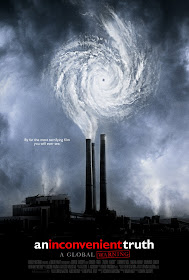I was introduced to the concept behind hypermiling when I was a kid, back in in South Africa by our Geography teacher, Mr Wahee. He used to run the hiking tours taking groups of six to eight twelve year olds through outstanding parts of the country on two to three week treks. On one trip from Joeburg to the Knysna forest Elephant Walk our combi ran very low on petrol.
Wahee's strategies for conserving fuel was to coast down the hills, gathering speed and momentum to take us as far up the next hill as possible without rapidly accelerating, discard useless weight and slip-stream trucks down the highway. The memories lay dormant for decades, until I started realising that my emissions-spewing, hoon-like diving style was at odds with a new understanding of the causes of climate change. So I resolved to drive more fuel efficiently, and picked up where Wahee had left off.
It was a revelation. It's quieter when you coast with your foot off the accelerator — and in neutral, down a long hill, it feels like the difference between sailing and stink-boating. You become more conscious of your car's performance, and more aware of traffic around you. The latter is for the same reason why motorbike riders are hyper-vigilant in traffic, you are driving in a manner that is different to the flow. You quickly add another rule. Your hypermiling is not to interrupt the flow of traffic.
I was discovering a better quality driving experience that offered me the satisfaction of competing against myself to beat my fuel mileage record, while saving money and co2 emissions.
Now I discover that there are other freaks like me. Global Warning Climate Change Environment Lifestyle Green
Global Warning Climate Change Environment Lifestyle Green
July 21, 2008
Hypermiling... the art of maximising fuel efficiency
Posted by Wadard @ 23:33
Labels:
Hypermiling
2
comments
![]()
June 9, 2008
Personal carbon trading
A House of Commons committee suggested last week that the U.K. Parliament create a personal carbon-trading scheme for all citizens of the United Kingdom. It was the strongest statement yet by any government in favor of an individual cap-and-trade system for buying and selling greenhouse gas emissions.
Personal carbon trading would provide a set "carbon emissions allowance" to each citizen and establish a national carbon budget. Individuals would then be able to trade their carbon credits with one another on a designated carbon market if they chose to purchase additional energy or to partake in activities that would exceed the allowed emissions limit, such as riding a plane.
Seems logical to me, but there will be adjustment pains. Seemed logical to Tim Yeo, the committee chairman, when he told the BBC ,"It's the single best instrument to encourage every man, woman, and child in the country to make a low-carbon choice every day. The problem with green taxes is they tend to bear most heavily on poor households. This way poor households will be able to make cash rewards for their decisions."
Posted by Wadard @ 00:06
Labels:
personal cabon trading
0
comments
![]()
June 8, 2008
NSW households emitting 2.5million tonnes of CO2 annually
Much of it is wasteful, according to an EnergyAustralia survey.
"Bad habits with appliances waste energy and waste money and like most bad habits, they should be broken."
We have proved how much water we can save, we can do it for electricity. The incentives are both financial, and environmental.
Technorati Tags: energy efficiency, green-livingAlmost 90 per cent of householders rinse dishes before putting them in the dishwasher, with almost half rinsing them in hot water.
More than a quarter of all households run the dishwasher before it is full.
Many householders also use refrigeration inefficiently with 22 per cent of people surveyed saying they leave the door open while unloading shopping and 29 per cent own a second fridge that is rarely used.
Young people waste more energy than older people, with people under 30 more likely to leave the fridge door open while making a meal (28 per cent) compared with people over 60 (7 per cent).
People under 30 are also more likely to use a clothes dryer, with 29 per cent saying they mostly use the dryer compared with only 9 per cent of people aged over 60.
Posted by Wadard @ 23:41
Labels:
emissions reduction
0
comments
![]()
There's money in restocking biodiversity
Or so hope Scottish millionaire, Paul Lister, who is restocking his estate with bears, wolves, elk and wild boar, and plans to charge visitors to see them.
Well it worked for Steve Irwing.
THE howl of a wolf echoes through the glen, lumbering bears fish in the lochs and moose amble through the forest of native trees.
This is multimillionaire Paul Lister's vision for his estate in the Scottish Highlands, and his grand scheme is already under way.
Last year, the British businessman spent £ $33,000 buying a pair of moose, also known as European elk, in Sweden and flying them to Scotland in a chartered plane.
Hulda and Hercules now roam a bracken and heather-carpeted 180-hectare enclosure in the Alladale Wilderness Reserve, alongside newly released wild boar.
His aim is to restore a section of the deforested and depopulated highlands to its former glory by releasing into his vast reserve native species that have disappeared from the highlands, and to turn a profit by charging people to visit.
"Alladale is a restoration project," said Lister, 49, the son of the founder of British furniture retailer MFI.
"It's not about conservation - we haven't got a lot to conserve."
 Environment Lifestyle Green
Environment Lifestyle Green
Posted by Wadard @ 23:02
Labels:
biodiversity,
eco-tourism
0
comments
![]()

